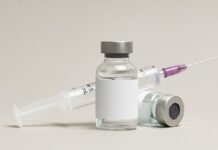Artificial Intelligence (AI) and cancer care may seem like an unlikely pair, but they are joining forces in transformative ways. From analyzing selfies to detecting tumors faster than ever, AI is emerging as a powerful ally in the fight against cancer. One groundbreaking study even reveals that AI can estimate your biological age just by analyzing your face—and that insight could help predict how you’ll respond to cancer treatment.
While AI won’t replace doctors anytime soon, it’s becoming an essential tool, enhancing diagnosis, treatment planning, and survival predictions—one algorithm at a time.
Meet FaceAge: AI That Reads Health Through Faces
Researchers at Mass General Brigham have developed an innovative AI tool called FaceAge, which estimates a person’s biological age by analyzing facial features. This estimation offers critical insights into a patient’s overall health and potential cancer outcomes.
In a study involving over 6,000 cancer patients, FaceAge showed that individuals who appeared biologically older than their actual age had significantly lower survival rates. According to the researchers, “Patients with cancer, on average, look around five years older than their chronological age and have a statistically higher FaceAge compared to individuals without cancer or with benign conditions.”
How FaceAge Works
To build FaceAge, scientists trained the AI model on nearly 59,000 photos of healthy individuals. The system learned to detect how features like skin texture, wrinkles, and facial structure correlate with biological aging.
As reported by TOI, when applied to cancer patients, FaceAge outperformed clinicians in predicting survival outcomes. For example, when doctors used FaceAge in combination with their clinical assessments, their accuracy in predicting six-month survival for patients undergoing palliative radiotherapy jumped from 61% to 80%.
Understanding Biological Age vs. Chronological Age
Biological age reflects the condition of a person’s body based on health indicators, not just the number of years they’ve lived. Genetics, lifestyle, and environmental exposures all influence biological aging. FaceAge leverages facial cues—like fine lines and skin tone—to estimate this age, giving doctors a window into a patient’s physiological resilience and overall health.
Transforming Cancer Treatment with AI Insights
By integrating FaceAge into clinical practice, healthcare providers can revolutionize how they approach patient care. This tool allows for more personalized treatment plans by offering an objective measure of a patient’s biological age. It helps doctors identify patients who may need more aggressive or adjusted therapies and provides clearer communication about prognosis.
Additionally, FaceAge can empower patients by offering insights into their health, possibly motivating lifestyle changes that improve outcomes.
Real-Life Implications: A New Way to Predict Treatment Tolerance
Consider this: a physically fit 75-year-old whose biological age is 65 may respond to treatment more successfully and live longer than a 60-year-old whose biological age is 70. Tools like FaceAge help uncover these critical differences, allowing for more informed clinical decisions.
























